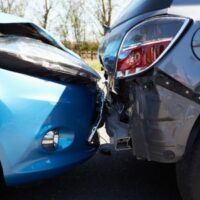Understanding PIP Setoffs In Your Car Accident Case

When you are in a car accident, your personal injury protection (PIP) insurance will pay about $10,000 towards your lost wages or medical bills (the amount may vary, depending on which you apply these to, and whether you have a deductible or not).
This is generally very helpful to people in car accidents, as it gives victims an immediate fund that allows them to get quick help, without having to make any claim against the negligent driver, and without having to file a lawsuit. PIP does not pay anything towards pain and suffering, or future medical expenses.
Setoffs for PIP Payments
But what a lot of people don’t realize is that if you do sue someone for injuries suffered in your car accident, your recovery will be reduced by the amount that your PIP insurance paid for your treatment or your lost wages.
Why does this happen? Because you can’t be paid twice for the same thing. If PIP pays $8,000 towards your medical bills, and then later a jury orders the negligent party to also pay for your medical bills, you are now being paid twice for those medical bills—once from insurance, once from the other driver.
The other driver gets a credit—legally known as a “setoff”—for whatever your PIP insurance paid.
That means that when you file a lawsuit for injuries suffered in a car accident, you start off “in the hole” about $10,000. That doesn’t mean you will ever owe the money back to insurance if you don’t recover anything—you don’t. It just means that, using simple numbers, if the other side has to pay you $20,000, they really will only have to pay you $10,000. If the jury says that you get $10,000, and you used $10,000 of PIP, you will actually get nothing.
No Insurance and PIP Denials
You’ll also start off this way, even if you were driving without insurance (which is illegal anyway, PIP being legally required), although this often depends on what county your case is in. This is a bad situation to be in. If you’re uninsured, you’ll have to have your verdict reduced, as if you received insurance money—even though you actually did not.
Although harsh, it’s the penalty for driving in violation of the law by being uninsured.
Sometimes, PIP will deny coverage of medical expenses. This is often an illegal denial, which you can fight in court, but should PIP say that you are not entitled to benefits, you would not have to have a setoff. In other words, if PIP cuts you off, your reduction (setoff) is limited only to what PIP actually paid towards your medical bills before PIP’s denial and the cutoff of payments.
Have you been injured in a car accident? The Tampa personal injury attorneys at Barbas Nunez Sanders Butler & Hosepian can help you handle the expected and unexpected things that often happen in a personal injury claim. Schedule a consultation today.
